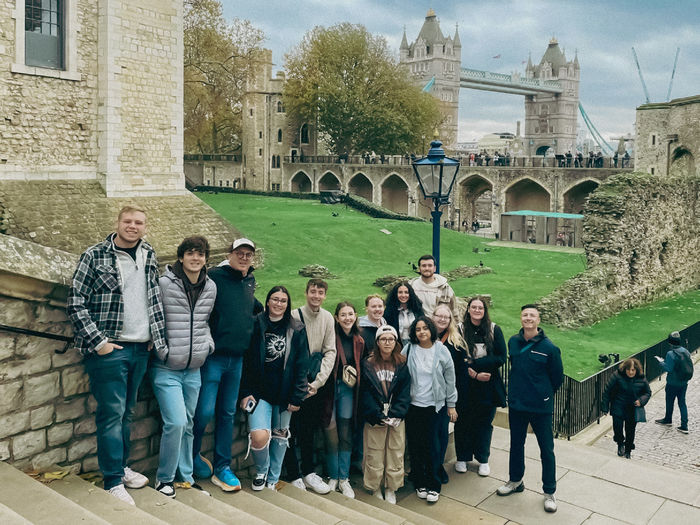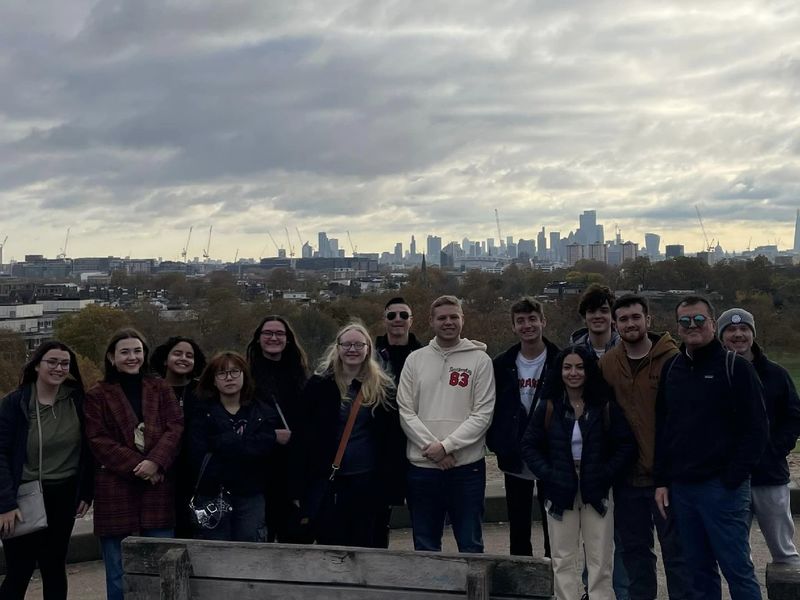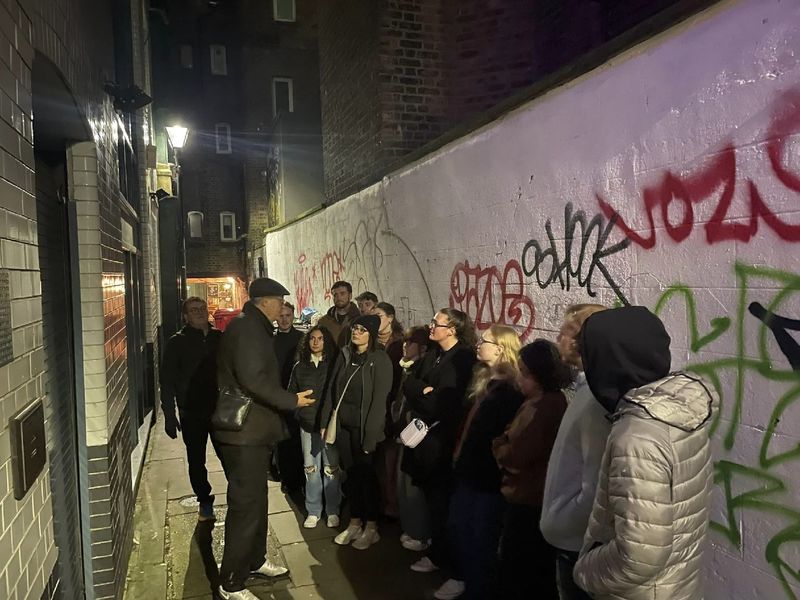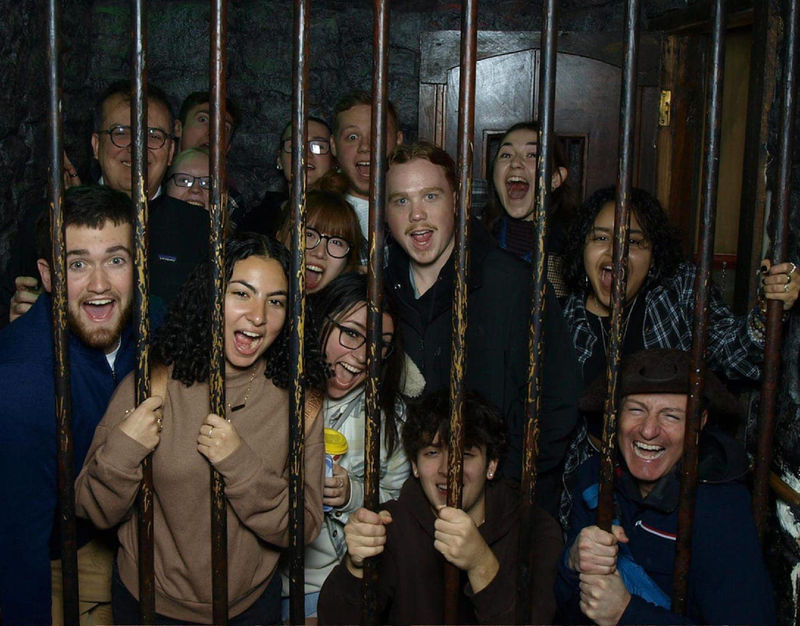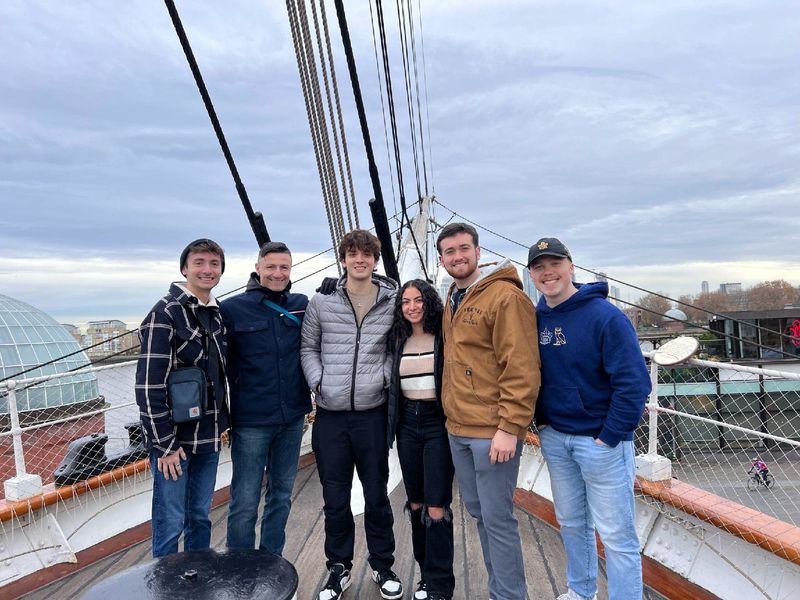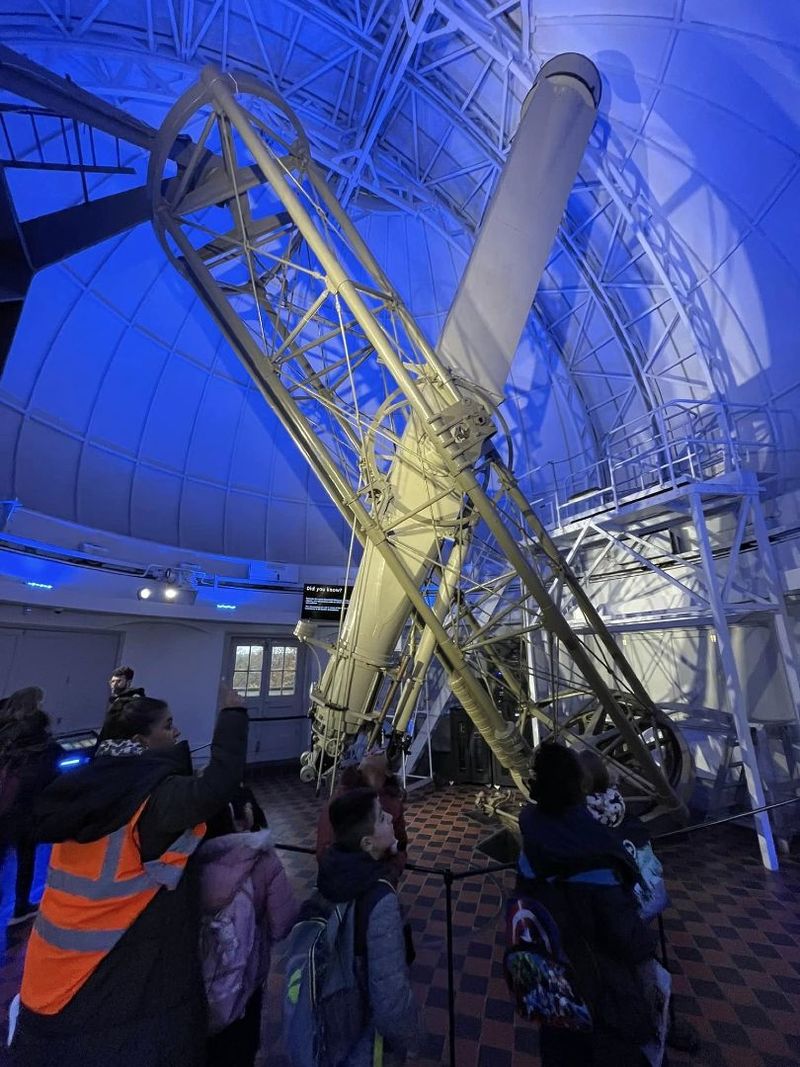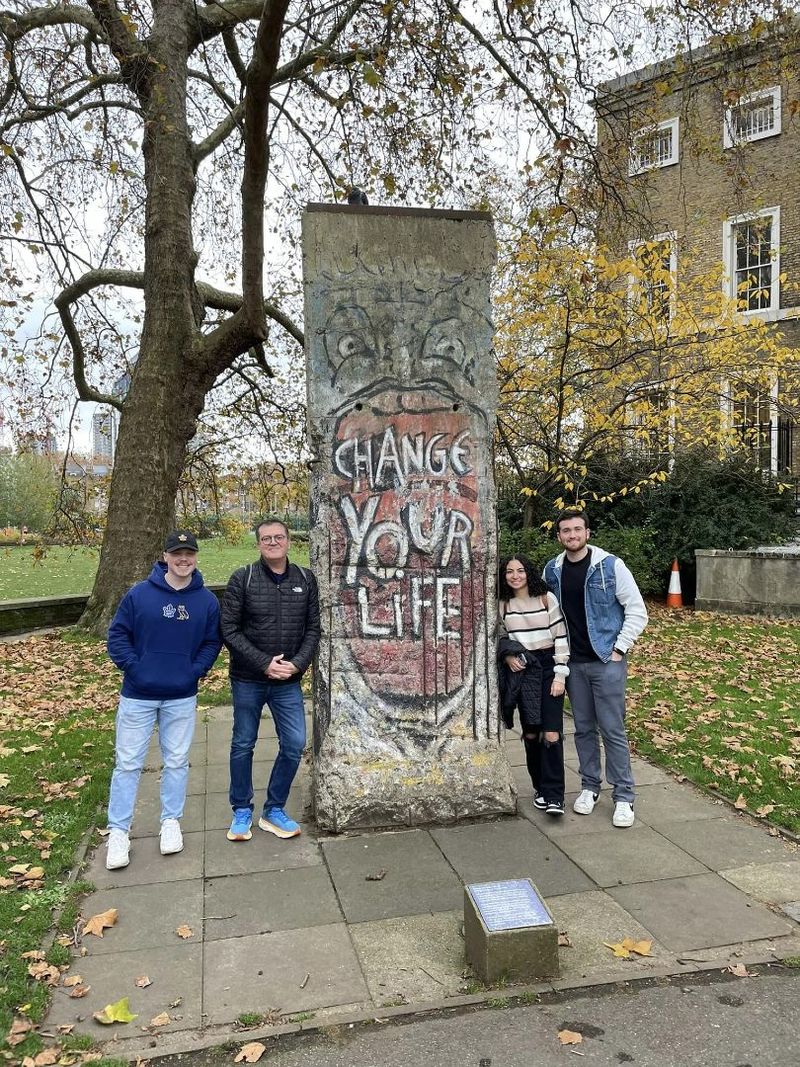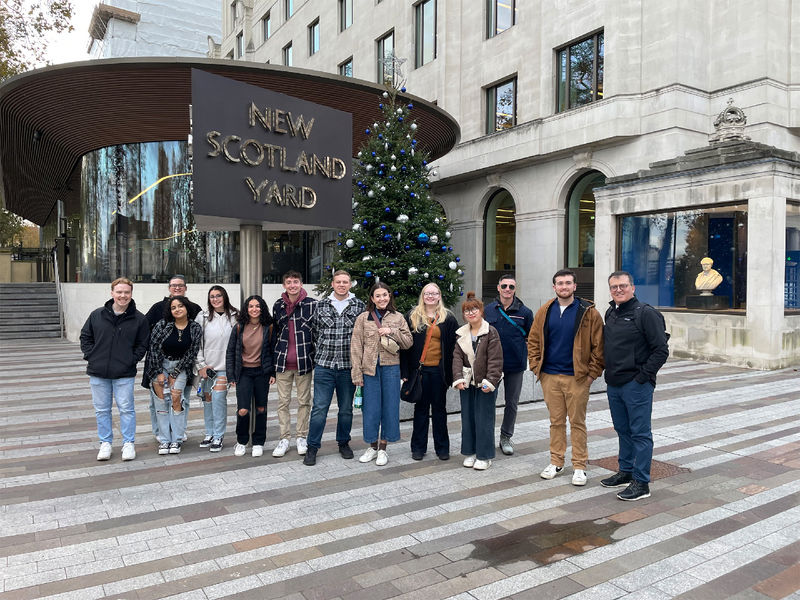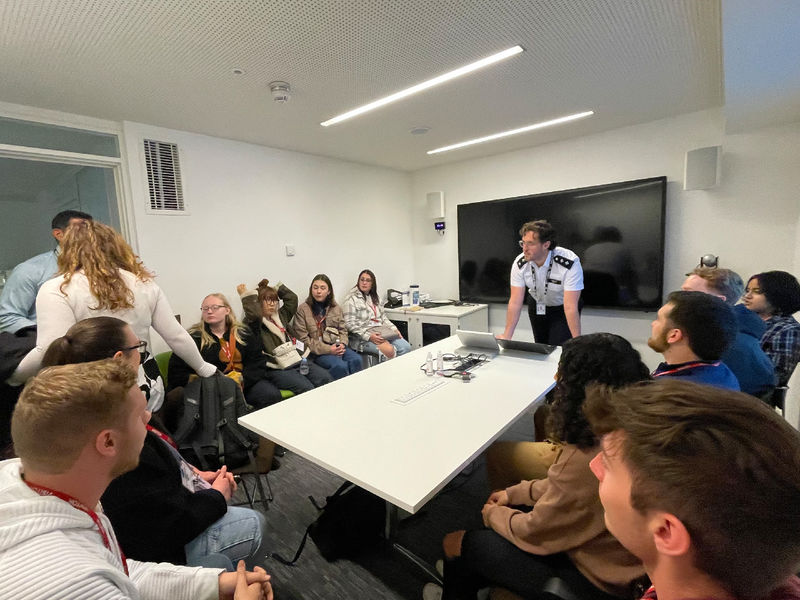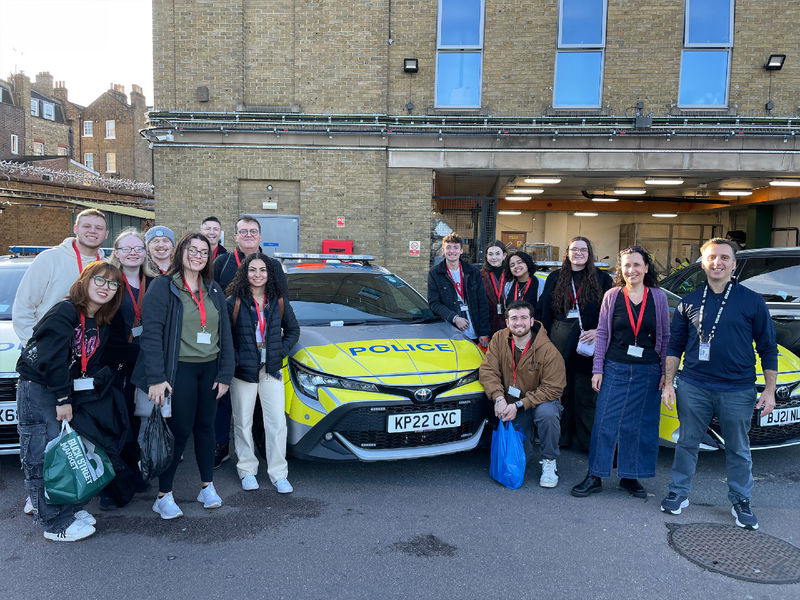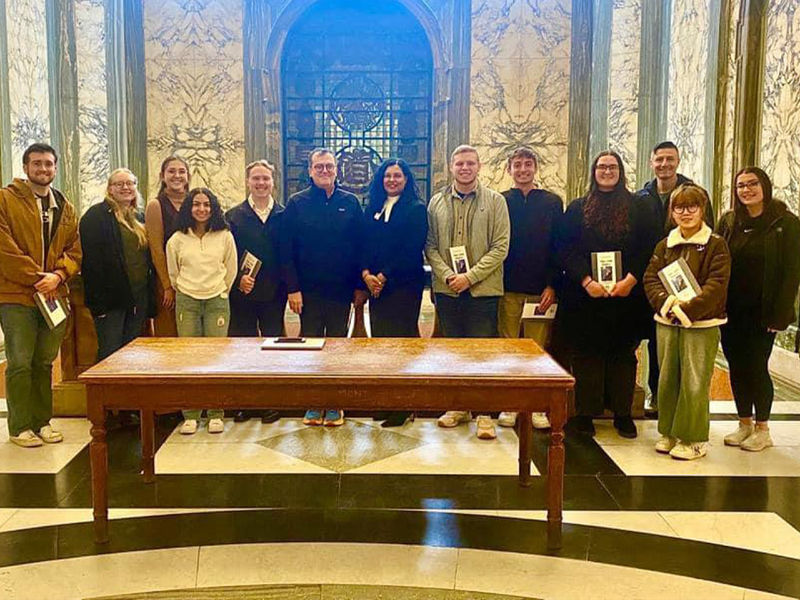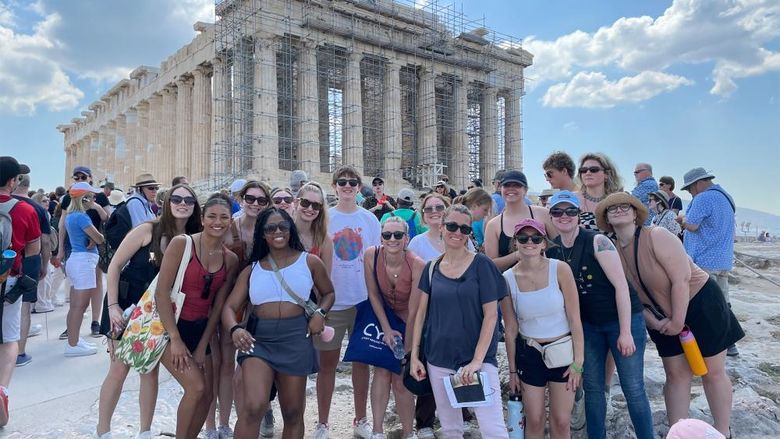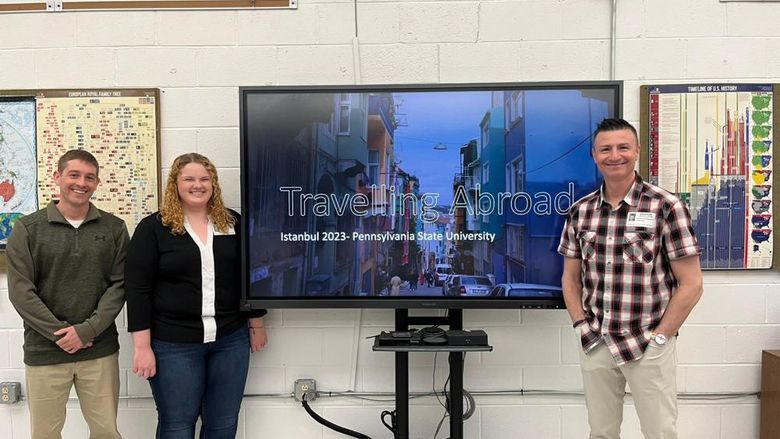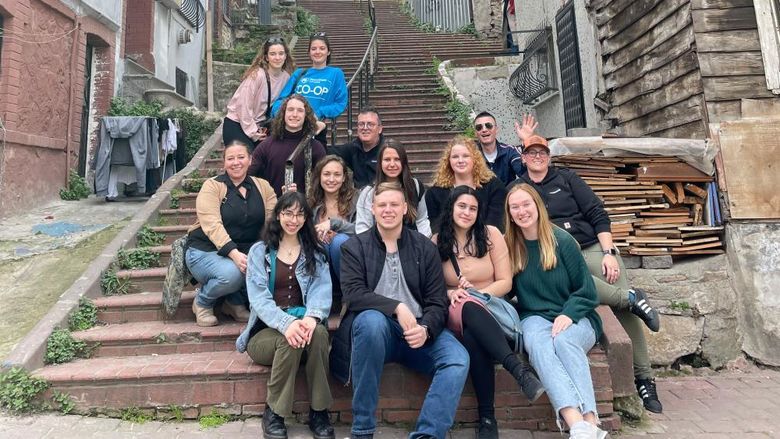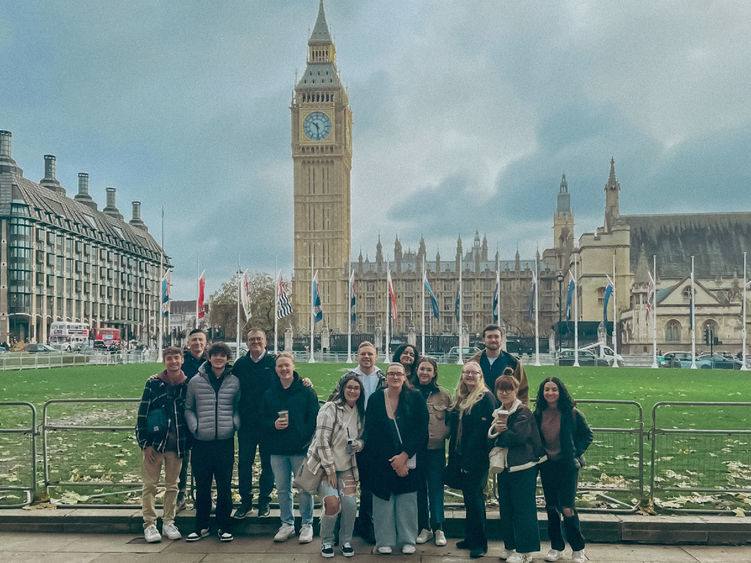
Penn State students in the course CRIMJ 499: Serial Killers and European Criminal Justice, standing in front of London's Big Ben.
LEMONT FURNACE, Pa. — Aris Karagiorgakis, associate teaching professor of psychology at Penn State Fayette, The Eberly Campus, and Hakan Can, professor of criminal justice at Penn State Schuylkill, led students on a journey through London, England, as part of the course CRIMJ 499: Serial Killers and European Criminal Justice. The seven-week, 3-credit course concluded at the end of the fall semester and offered students an immersive experience into the heart of English criminal justice history and modern practices.
The program, open to all Penn State students, explored key British sites to gain insight into the evolution of the English criminal justice system. Students participated in an extensive walking tour, taking in the sights of Westminster Abbey, St. Paul’s Cathedral, Parliament Street, Millennium Bridge and Tower Bridge.
In addition to these historical explorations, the students engaged directly with the contemporary criminal justice system. They received a lecture on current research aimed at reducing discriminatory practices in "stop and search" from Inspector David Porter at New Scotland Yard, accompanied by a tour from Metropolitan Police Detective Sgt. Ozan Bagatirlar and Detective Helena S.
At Islington Police Station, the students were lectured on gun violence and approaches to crime prevention, punishment and justice by Special Constable George Nahlis and Roula Nahlis from Sir George Monoux College. These experiences were coordinated by Detective Sgt. Alex Williams from Metropolitan Police, a London International Police Association Officer, specifically considering the Penn State students' diverse backgrounds and perspectives.
The itinerary also included a visit to the Tower of London, the Clink Prison Museum, and a uniquely engaging London Dungeon Experience. The students delved into the darker chapters of London's history with a Jack the Ripper walking tour and gained firsthand insight into contemporary legal proceedings by attending a trial at the Old Bailey.
At the Central Criminal Courts, the students had a particularly impactful experience. Thanks to Communications Manager Jay Patel, they sat through a murder and an arson trial, took a tour of the Old Bailey Courthouse, and even had one-on-one time for a Q&A session with Senior Circuit Judge Judy Khan. Khan fielded questions and inspired a unique discussion about death penalty attitudes across cultures, offering the students a deep dive into the complexities of judicial perspectives and cultural differences in law.
Throughout their journey, the students explored how legal and cultural contexts in the United Kingdom shape human behavior. Through hands-on experiences and engaging dialogue, they examined the psychological underpinnings of law and culture and how these elements influence thoughts, feelings and daily actions.
Reflecting on the experience
“Visiting historical sites provided a vivid understanding of how much has changed throughout history, like seeing where the last public execution took place, to the modern legal practices at places like the Old Bailey. It's one thing to read about history, but it's another to stand where it all happened,” said Roger Myers, a fourth-year electro-mechanical engineering technologies student from Fairchance, Pennsylvania.
“Even though it's not directly related to my major, the trip was very educational. It helped me understand not only the U.K.'s legal system but also our own in the U.S. Comparing various international systems to ours provided a deeper understanding of our practices and laws,” Myers added.
“Walking through spaces like medieval prisons and courthouses allowed me to connect with the conditions and processes prevalent during those times. Studying the architecture and design of historical courthouses and prisons revealed shifts in attitudes toward justice and punishment,” said Bailey Dunn, a fourth-year criminal justice and psychology student from New Cumberland, Pennsylvania. “As I wandered through the medieval corridors and stood in the shadow of the imposing White Tower, I couldn't help but feel the weight of centuries of legal history. The Tower, with its storied past as a fortress, royal palace and prison, became a symbol of the evolution of the English legal system.”
“You hear a lot of stories about serial killers and the psychology behind their motives. But whenever you have absolutely no idea who does the killing, it becomes a lot more complex. One thing that I really appreciated during our Jack the Ripper walking tour was how our guide humanized the victims. They were sex workers, and there's a tendency to victim-blame sex workers when they are assaulted or murdered. The guide was wonderful, talking about these women's lives, and why they ended up where they did, how they ended up doing sex work. There was no stigmatization at all,” said Kenadi Erdely, a fourth-year business accounting major from Perryopolis, Pennsylvania.
"If people have the opportunity, and they are able to participate in a study abroad program, they should absolutely do it. I know there are often financial, personal, or work-related barriers, but if there's any chance that you can overcome those, go somewhere and experience people and cultures different than what you’re used to,” Erdely added.
“From my perspective, the way the prosecutors were cross-examining each other felt more respectful in the United Kingdom than the United States. Everything was so respectful in the courtroom,” said Nicholas Cutler, a third-year student pursuing a major in psychology and minor in crime, law and psychology from Boise, Idaho.
“It was such an overwhelming, exciting experience seeing the trial firsthand. I’ve never been a jury member in the United States before, so maybe that’s why it was so intense for me,” Cutler added.
